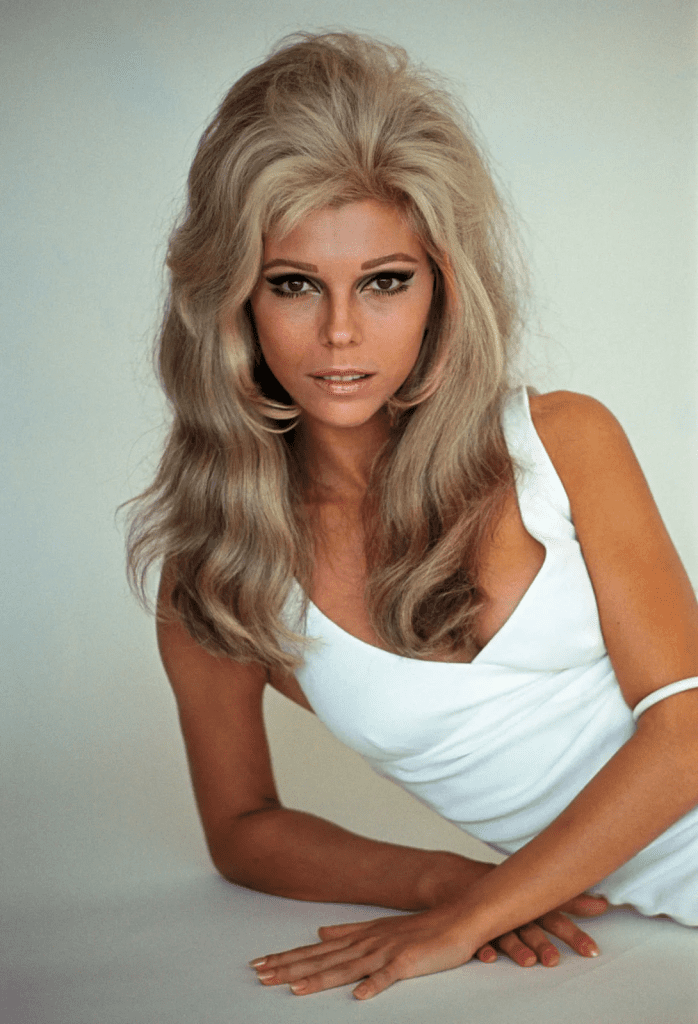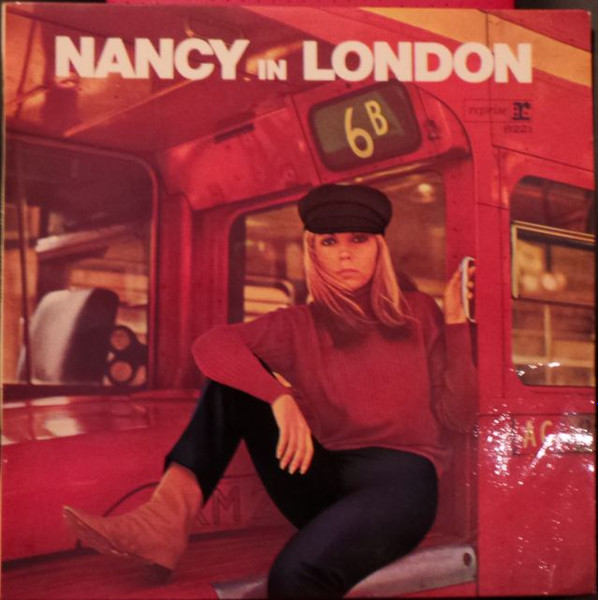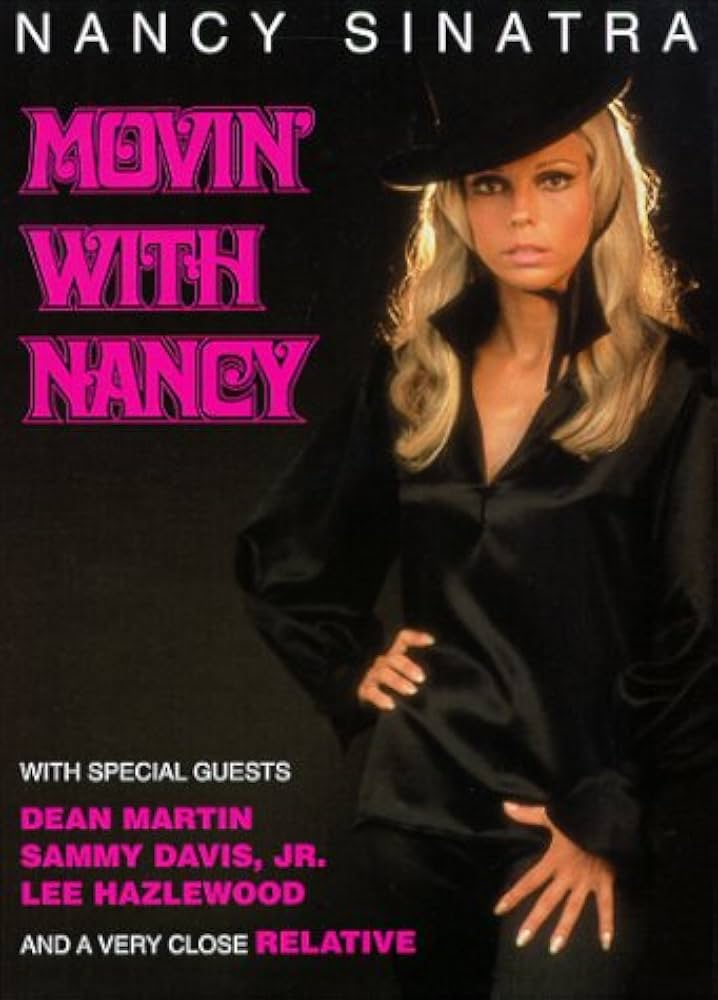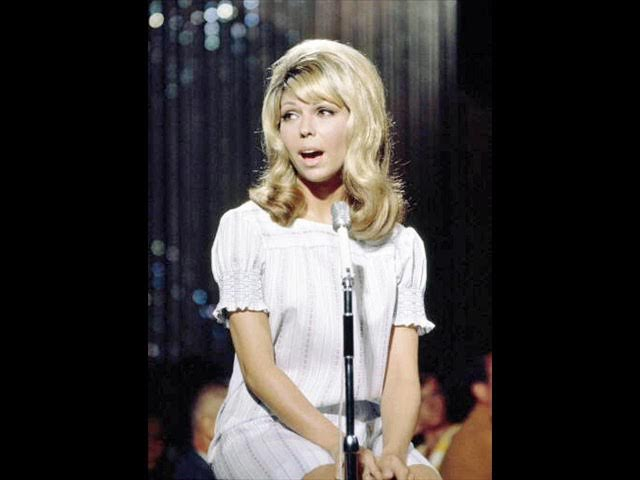Nancy Sinatra, daughter of legendary crooner Frank Sinatra, made a name for herself as an influential force in music and pop culture. While the Sinatra surname evokes thoughts of timeless tunes and Hollywood glamour, Nancy carved a distinctive path filled with bold style, attitude, and sound. Over five decades, she has become an enduring icon, inspiring generations with her music, acting, and fashion.
Early Life: Growing Up Sinatra

Born on June 8, 1940, in Jersey City, New Jersey, Nancy Sandra Sinatra was destined for stardom. As the first child of Frank Sinatra and Nancy Barbato, she was raised amidst the glamour of the entertainment industry. Music and performance were central to her upbringing, and it became clear early on that she had inherited her father’s musical passion and her mother’s elegance.
Nancy attended University High School in Los Angeles and later pursued music, dance, and voice studies at the University of California, Los Angeles (UCLA). However, her ambitions soon led her to leave school and dive headfirst into a career in music and acting.
Breakthrough in Music: “These Boots Are Made for Walkin’”

Nancy’s music career took off in the mid-1960s, thanks to her collaboration with songwriter and producer Lee Hazlewood. In 1966, she released “These Boots Are Made for Walkin’”, a song that became an instant success. With bold lyrics, a catchy rhythm, and Nancy’s sultry voice, it became an anthem of female empowerment and independence. It quickly reached the top of the Billboard Hot 100 chart, solidifying her status as a rising star.
The song’s accompanying music video, featuring Nancy in go-go boots and a mini-skirt, became a pop culture sensation. It wasn’t just the music that resonated with audiences—it was Nancy’s commanding presence, which perfectly captured the evolving social landscape of the 1960s.
Hits and Collaborations: Defining the 1960s and 1970s
Following the success of “These Boots Are Made for Walkin’,” Nancy continued to release a string of hits, often in collaboration with Hazlewood. Some of her most popular tracks from the era include:
- “Sugar Town” (1966): This playful pop tune showcased Nancy’s softer side and became a top-ten hit in the U.S.
- “Somethin’ Stupid” (1967): A duet with her father, Frank Sinatra, this song topped the Billboard Hot 100, becoming the first and only father-daughter duet to achieve this milestone.
- “Bang Bang (My Baby Shot Me Down)” (1966): This haunting ballad highlighted Nancy’s vocal range and emotional depth. It gained renewed popularity when it was featured in Quentin Tarantino’s Kill Bill: Volume 1 in 2003.
- “You Only Live Twice” (1967): Nancy lent her voice to the theme song of the James Bond film of the same name, showcasing her ability to handle both pop hits and cinematic ballads.
- “Some Velvet Morning” (1968): Another collaboration with Hazlewood, this psychedelic track became a cult classic, demonstrating Nancy’s willingness to experiment with her sound.
Nancy’s albums during this period, such as Boots (1966), Nancy in London (1966), and How Does That Grab You? (1966), solidified her place in the music industry. Beyond just a singer, Nancy became a cultural figure who embodied the spirit of the 1960s—bold, stylish, and unapologetically independent.
Film and Television: Expanding Her Presence

Nancy Sinatra also made a name for herself in film and television during the 1960s. She took on roles that aligned with her musical persona, bringing her charm to the big and small screens. Some of her notable acting credits include:
- “The Wild Angels” (1966): Starring alongside Peter Fonda, Nancy played a leading role in this cult biker film, one of the earliest of its genre.
- “Speedway” (1968): Nancy starred opposite Elvis Presley in this musical comedy, creating a buzz as two of the era’s biggest music icons came together. Her performance, coupled with her chemistry with Presley, was a hit among audiences.
- “Movin’ with Nancy” (1967): This television special featured Nancy performing her biggest hits, alongside appearances by stars like Dean Martin and Lee Hazlewood. It highlighted her talents not just as a singer but as a captivating performer.
Throughout her career, Nancy remained a familiar face on television talk shows, variety programs, and music specials. Her effortless style and approachable persona endeared her to fans across the globe.
Cultural Impact: Music, Fashion, and Female Empowerment

Nancy Sinatra’s influence extends far beyond her chart-topping hits. As one of the few female artists in the 1960s to achieve significant commercial success, she paved the way for future generations of women in music. Her songs blended toughness with vulnerability, resonating deeply during a period of social change.
Nancy’s impact is evident in the work of many contemporary artists, especially in pop and indie music. Her collaborations with Lee Hazlewood have inspired musicians like Lana Del Rey, who has openly expressed admiration for Nancy’s work. Covers of “Bang Bang (My Baby Shot Me Down)” by various artists have also kept her legacy alive.
Nancy’s iconic fashion sense—think mini-skirts, go-go boots, and bouffant hair—has left a lasting imprint on fashion. Her style continues to be referenced in music videos, film aesthetics, and even modern runway collections, underscoring her lasting influence.
Recent Years: Music, Activism, and Legacy

Nancy Sinatra remains active in the music scene, focusing on preserving her legacy and contributing to new projects. She has reissued several of her classic albums, making them available to younger audiences. Embracing the digital age, Nancy engages with fans through social media, sharing personal stories, career highlights, and memories from her storied life.
Nancy has also used her platform for philanthropy, supporting causes related to veterans’ affairs, mental health, and music education. Her advocacy efforts reflect her commitment to making a positive impact beyond the entertainment industry.
In 2004, Nancy released a self-titled album, Nancy Sinatra, featuring collaborations with contemporary artists like Morrissey, Jon Spencer, and Jarvis Cocker. The album blended classic pop with modern influences, showing her willingness to evolve while staying true to her roots.
Conclusion: The Legacy of Nancy Sinatra

Nancy Sinatra’s life and career are a testament to her resilience, versatility, and enduring impact. From her early days as the daughter of a music legend to becoming a cultural icon in her own right, Nancy has influenced generations with her music, acting, and fashion sense.
Her music continues to inspire artists and fans alike, while her style remains a timeless symbol of empowerment and individuality. As she continues to engage with her audience and support meaningful causes, Nancy Sinatra’s legacy as a pop culture icon is far from over. She stands as a powerful reminder of the transformative impact of a strong voice, both in music and in life.


